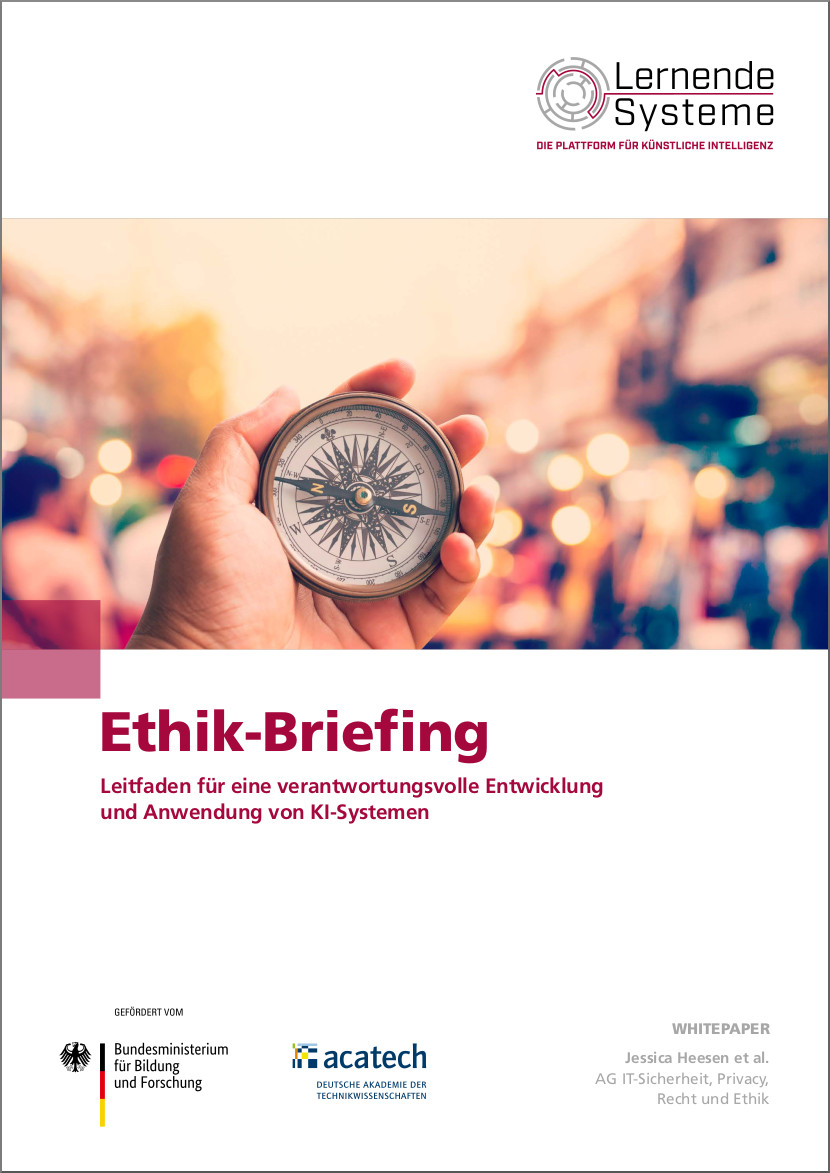Ethics guide on artificial intelligence
Artificial intelligence (AI) can make our everyday lives easier, improve healthcare, and help solve global challenges such as climate change or the corona pandemic. However, the extent to which AI-based systems are actually used depends largely on whether people trust the technology. Germany’s platform for artificial intelligence „Plattform Lernende Systeme“ launched by the German Federal Ministry of Education and Research (BMBF), has now written a guide on how to develop secure, traceable, and non-discriminatory AI applications.
AI for the common good
„AI systems should always be developed and used with the aim of contributing to ethically legitimate applications, ideally to promoting the common good,“ says co-author Armin Grunwald, head of the Institute for Technology Assessment and Systems Analysis (ITAS). “When using AI, harm to individuals, communities, and the environment must be avoided. The systems must be legally compliant and technically robust. They must not pose an unacceptable security risk at any time.“
Open interfaces and AI registers
In order to ensure user’s self-determination, technology companies should design explainable AI systems that make results and decisions comprehensible. The guide also recommends a central AI register, which is operated in cooperation between industry and the public sector, as well as the integration of open interfaces in the AI systems in order to maintain the diversity of the market offer. (13.10.2020)
Further links and information:


